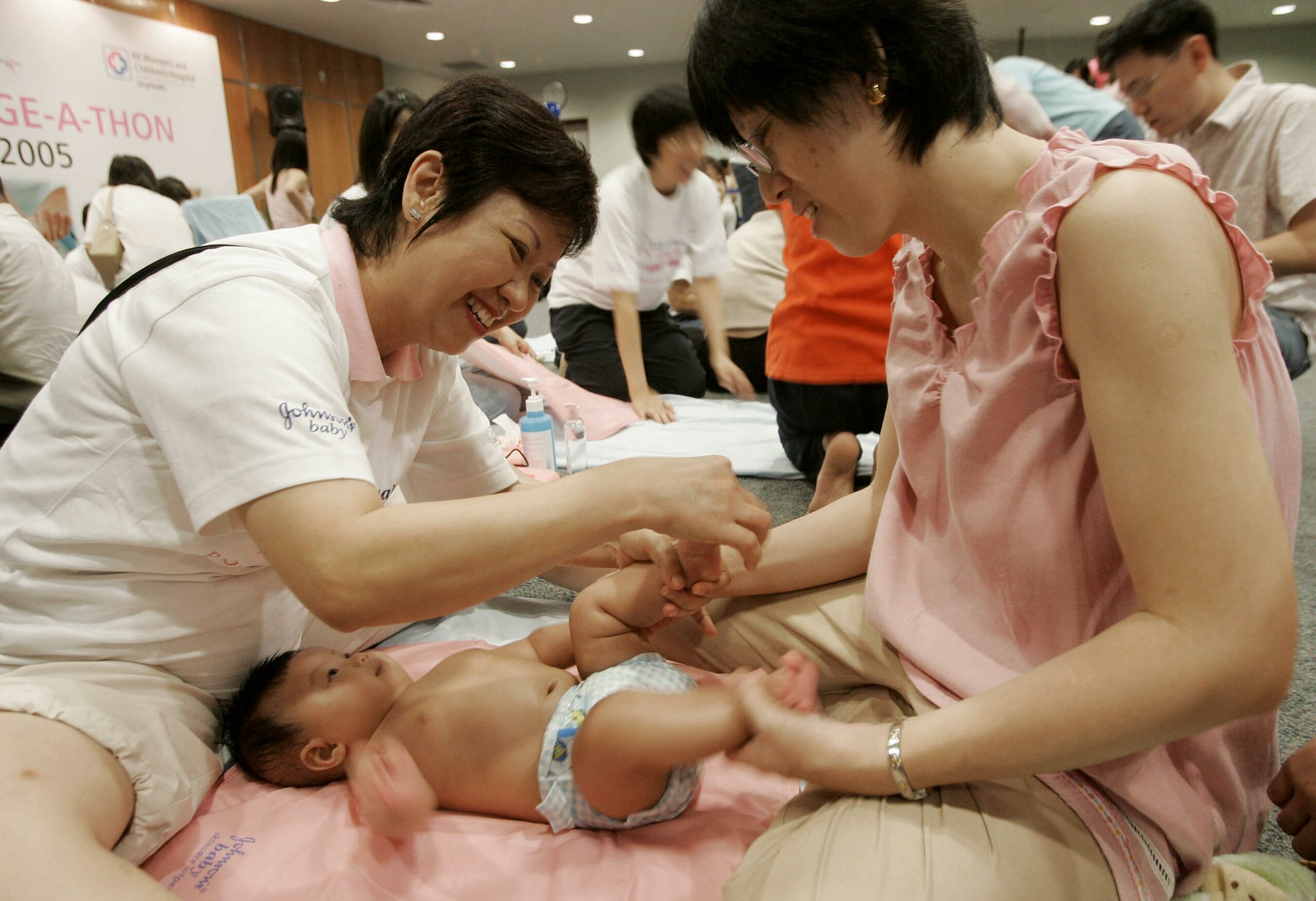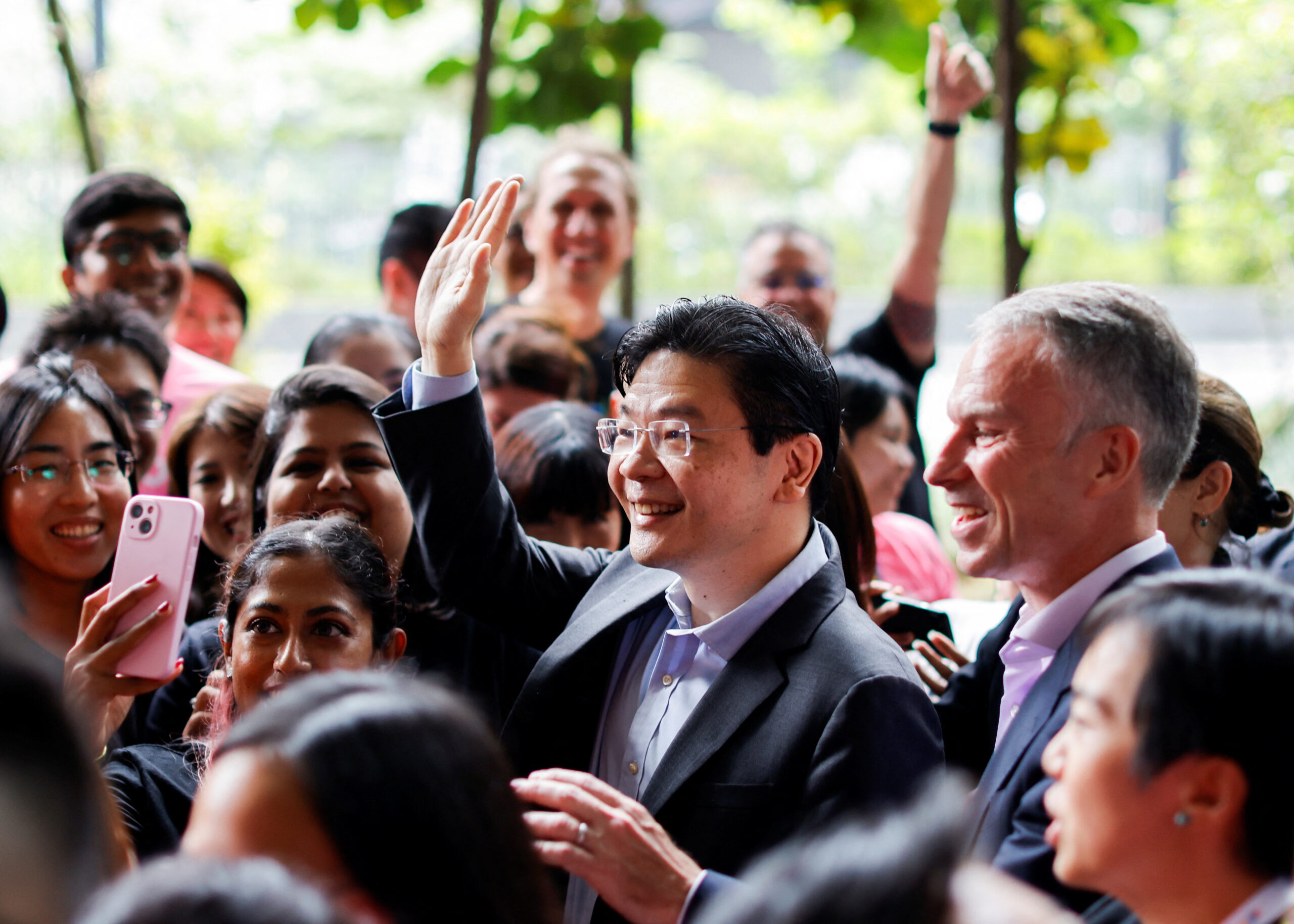Singapore’s new annual budget, delivered on Valentine’s Day, earmarked a special gift for families with new babies – but showed no love to single mothers and unwed parents.
On 14 February, Singaporean Finance Minister Lawrence Wong announced the details of a “particularly challenging” 2023 budget that aimed to balance fiscal prudence with helping the city-state’s residents manage rising living costs and inflation.
As the city-state’s bars and restaurants decked out in hearts for Valentines Day business, Wong, the named successor of Prime Minister Lee Hsien Loong, also focused on coupledom. The budget featured increases in both paternity leave and the Baby Bonus cash stipend for married Singaporean couples, as the city bumps up efforts to tackle low fertility rates and stagnating populations.
These plans are geared toward nuclear families as defined by the state, according to advocacy groups, which does not include the 6% of resident households led by a single parent in the Lion City.
“Given such exclusions, unwed parents miss out on a substantial amount of financial assistance that would aid in alleviating the financial burden of raising a child,” said Corinna Lim, executive director at AWARE, Singapore’s leading gender equality advocacy group.
Though single-parent households can access the Child Development Account – a special savings account for Singaporean children – they are not eligible to receive the Baby Bonus and other incentives granted to their married peers.
The bonus received a $2,248.30 (SGD 3000) cash hike, a major part of the 2023 budget. Other family-based programmes mentioned by Wong in the budget announcement include tax cuts, such as the Working Mother’s Child Relief scheme, and priorities for families to buy their first home through state-subsidised Housing Development Board programmes.
Lim said the increases “will only widen the disparity between the support given to married and unwed parents.”
“This is particularly significant as many single parents already experience financial difficulties as sole income earners and caregivers,” she said. “The exclusion of unwed parents from such schemes jeopardises their ability to provide a stable living environment for their children.”

Despite a slight population increase of 3.4% in 2022 from the year before, Singapore’s population still remains below its pre-Covid levels. Resident fertility rate has also seen a general decrease over the past decades, despite a slight hike since a historic low in 2021.
This is because of later marriages and married couples deciding to have children later in life, according to a report by the government’s National Population and Talent Division.
Now, in the world’s most expensive city, the government is providing financial incentives to help build the Lion City’s next generation of cubs.
A Baby Bonus cash gift from the government is a longstanding boon for married Singaporean couples, with stipends for babies ranging from $7,504 – 9,755 (SGD 10,000 – 13,000). Under the new budget, this will be given an extra $2,251.20 (SGD 3000) boost.
There will also be more government contributions to the Child Development Account, as well as the Baby Support Grant, for children born from 1 October 2020 to 30 September 2022.
Paternity leave for expectant fathers was also increased from two to four weeks.
Background to budget
Singapore’s new budget also reflects hopes to replenish pandemic-depleted coffers.
Wong said the government collected higher-than-expected revenue last year, resulting in a smaller deficit of $2 billion (SGD 1.51 billion) for the 2022 fiscal year instead of the initially estimated deficit of $2.25 billion (SGD 3 billion), or 0.5% of GDP.
For 2023, the expected shortfall would be $0.3 billion (SGD0.4 billion), or 0.1% of GDP.
Wong announced tax changes that would affect higher-income Singaporeans and large companies but also more support for low-income families, top-ups for a medical assistance fund and a support package to offset a hike in sales tax.
“With a stronger fiscal position than last year, deputy prime minister Lawrence Wong’s Valentine Budget 2023 has rightfully provided a slew of goodies for lower-income earners, working mothers, and retirees through various enhancements,” Ajay Kumar Sanganeria, a partner at KPMG Singapore, said.
Singapore’s trade-reliant economy faces headwinds this year from slowing global growth, inflation and rising interest rates. Meanwhile, its expenditures are increasing due to the climbing cost of healthcare, driven by an ageing population.
Support package
Wong said Singapore must brace for higher inflation but added that the government would help citizens and businesses weather cost pressures.
The government will enhance a support package to help Singaporeans offset a recent sales tax hike from $4.97 billion (SGD 6.6 billion) to $7.2 billion (SGD$9.6 billion.)
The second step of a scheduled sales tax hike would go ahead as planned in 2024. The sales tax will increase to 9% next January, after increasing from 7% to the current 8% on Jan. 1 this year.
Wong said this would offset all the spending increases lower-income households face due to inflation and the sales tax hike, while “substantially covering” spending increases for middle-income households.
With material from Reuters.


